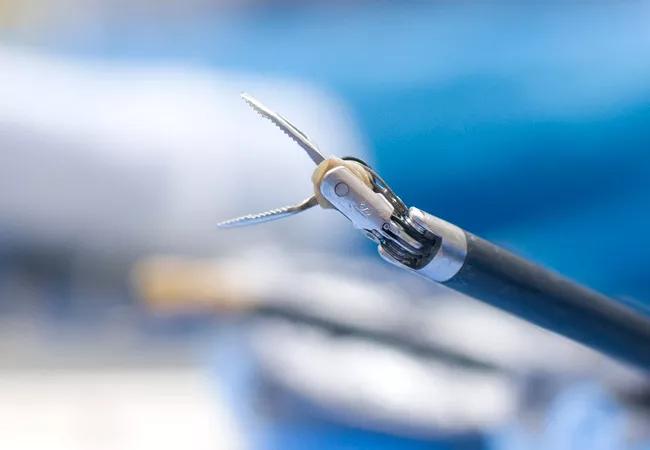New fellowship will address deficiency

Image content: This image is available to view online.
View image online (https://assets.clevelandclinic.org/transform/45c826cb-31ab-4e5c-8369-42121df62c22/robotic_650x450_jpg)
robotic_650x450
Research shows reproductive surgery may be a more cost-effective treatment option than IVF for various infertility conditions. Unfortunately, many reproductive endocrinologists do not offer it to their patients because they lack adequate training to perform such procedures.
Advertisement
Cleveland Clinic is a non-profit academic medical center. Advertising on our site helps support our mission. We do not endorse non-Cleveland Clinic products or services. Policy
The Society for Reproductive Surgeons recently asked Jeffrey M. Goldberg, MD, head of Reproductive Endocrinology and Infertility and Director of the Reproductive Endocrinology and Infertility (REI) Fellowship Program at Cleveland Clinic, to chair a committee to address this issue.
The committee created an online survey and distributed it to current REI fellows across the country and to those who graduated in the previous year to determine their perceived need for surgical training and whether they would be willing to commit an additional year to obtain it. Linnea Goodman, MD, 2016 graduate of the Cleveland Clinic REI Fellowship Program, was the lead investigator and presented the survey data at the 2017 annual meeting of the American Society for Reproductive Medicine.
“Based on the survey results, we went forward with creating a one-year fellowship in reproductive surgery for graduating REI fellows who would like to acquire the requisite skills to become proficient in reproductive surgery,” says Dr. Goldberg.
Thirty-nine percent responded to the survey. They were equally distributed among first-, second- and third-year classes. Forty-five percent said they wanted additional surgical training during their fellowship and 53 percent said they felt their surgical training was adequate.
The survey asked participants to quantify the number of specific procedures they had performed during fellowship and how many they felt they would need to feel adequately prepared to perform that procedure independently outside of a fellowship.
Advertisement
The responses showed that the fellows felt they were receiving adequate training in abdominal and hysteroscopic surgery but inadequate training in laparoscopic and robotic procedures. Fifty-five percent said they desired additional laparoscopic surgical experience and 52 percent said they desired additional robotic surgical experience. When asked about interest in the method of additional training, 71 percent endorsed interest in a surgical “away rotation” and 32 percent reported an interest in an additional one-year surgical training program.
Not all REI fellowship programs have faculty that can teach these techniques, Dr. Goldberg points out, and the result is that many infertility specialists have to send patients who need such surgery to general gynecologists or minimally invasive gynecologic surgeons.
“There’s a different philosophy and skill set between these surgeons and a fellowship-trained reproductive surgeon,” he says, adding, “I still believe that someone who’s been specifically trained to do reproductive surgery is best suited to perform fertility preserving and enhancing surgery, including the management of infertility due to fallopian tube disease, fibroids and endometriosis.”
Dr. Goldberg says applications are now being accepted for the one-year fellowship in reproductive surgery through the Society for Reproductive Surgeons’ website. Programs are currently available in Georgia, California and Illinois with more to be added in the near future. The first class will start in July 2018.
Advertisement
Advertisement
Counseling and careful surgical considerations are key
Deprivation is linked to impaired glucose intolerance and racial disparities
Perioperative prophylaxis and class III obesity
Artesunate ointment is safe well and tolerated patients with vulvar intraepithelial neoplasia
Endoscopic balloon dilation during pregnancy helps optimize outcomes
Researchers examine waste and implore colleagues to take action
Mode of delivery does not affect patient satisfaction